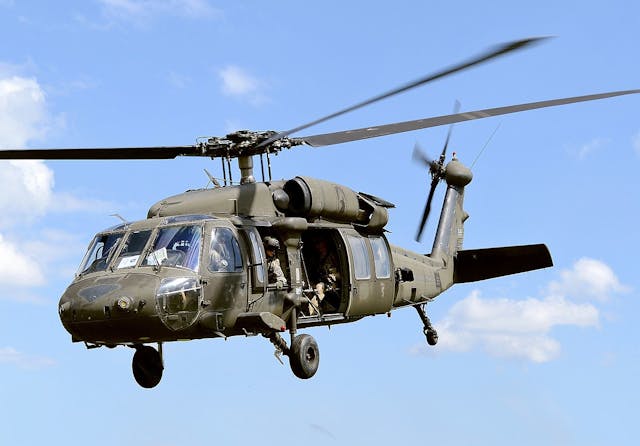UH 60 Black Hawk: From Principle to Contemporary Applications
UH 60 Black Hawk: From Principle to Contemporary Applications
Blog Article
The Function of Airplane in Forming International Transportation and Profession Characteristics
The evolution of aircraft has indelibly transformed global transportation and profession characteristics, promoting unprecedented degrees of connection and performance. Via the facility of durable air freight networks, organizations can now navigate worldwide markets with exceptional rate and dexterity, therefore redefining supply chain techniques. Nevertheless, this improvement is not without its challenges, as the air travel industry grapples with sustainability problems and regulative pressures. As we discover the diverse impacts of aircraft on global trade, it is necessary to think about just how these elements will certainly shape the future landscape of air travel and its role in the economy.

Evolution of Air Transport
The evolution of air transportation has been noted by significant technical developments and developments that have actually transformed the means individuals and goods move across the globe. From the Wright bros' first powered trip in 1903 to the advancement of supersonic jets, each milestone has actually highlighted the relentless quest of performance and rate in air traveling.
The latter component of the 20th century saw the introduction of commercial aviation as a feasible setting of transport, characterized by the intro of jet engines, which changed air traveling by drastically lowering flight times. Furthermore, technologies in navigating and interaction modern technologies have improved operational efficiency and safety, enabling even more complex trip courses and routines. The surge of air freight in parallel with traveler solutions has actually further emphasized the versatility of aeronautics. As we seek to the future, emerging technologies such as independent and electric airplane pledge to redefine the air transportation landscape, making sure continued evolution and adaptation to worldwide needs.
Effect On Global Trade
Air transportation has exceptionally improved worldwide trade by promoting the swift movement of goods across substantial ranges. This expedited logistics capability allows organizations to react rapidly to market demands, consequently boosting supply chain performance. The capacity to move disposable items, high-value things, and time-sensitive products has opened new markets and possibilities for various markets, significantly affecting profession patterns.
Additionally, the growth of air cargo networks has fostered globalization, allowing business to source products and items from various parts of the world flawlessly. This interconnectedness decreases lead times and expenses, permitting services to stay competitive in a progressively global industry. Additionally, air transportation plays an essential role in shopping, where consumer expectations for quick shipment have actually driven a rise sought after for air cargo solutions.
The influence of airplane on worldwide trade includes the production of critical trade courses, connecting areas and promoting international collaborations. Countries that buy air transportation facilities usually experience boosted economic growth and raised international straight financial investment. Generally, the advancement of air transport has not only transformed the logistics landscape however has additionally come to be a crucial element in the dynamics of international trade.

Financial Benefits of Aeronautics
A robust aviation market produces significant economic benefits, adding to work production, tourism, and total financial growth - uh 60. The air travel industry sustains millions of work worldwide, varying from direct employment in airline companies and airports to indirect functions in fields such as friendliness, transportation, and logistics. According to industry records, for each work in the air travel field, around 3.5 extra work are produced in the wider economic situation
Tourist is a critical element of the economic benefits originated from aviation. Flight promotes worldwide tourism, permitting vacationers to discover diverse destinations, which consequently boosts neighborhood economies. Countries that spend in their aeronautics facilities typically experience boosted tourist arrivals, causing greater investing on solutions such as attractions, hotels, and restaurants.

Additionally, aviation boosts worldwide connectivity, making it possible for organizations to access brand-new markets and sources effectively. This connectivity promotes international trade, permitting for the rapid motion of items, which is essential in today's globalized economy. Because of this, markets such as shopping and manufacturing advantage greatly from trustworthy air transport, further driving financial expansion. On the whole, the aeronautics industry continues to be a cornerstone of economic vitality, underscoring its important role fit contemporary economies.
Difficulties Dealing With the Aeronautics Sector
Navigating an intricate landscape of governing, ecological, and economic difficulties, the aeronautics sector faces substantial obstacles that threaten its sustainability and development. Rules surrounding security More Help and safety are continually developing, demanding recurring compliance and adaptation from airline companies and producers (uh 60). This can result in enhanced operational costs and resource appropriation that diminishes advancement and development efforts
Additionally, environmental problems have become vital, with expanding analysis over carbon emissions and environmental pollution. The industry is under stress to embrace greener methods and innovations, which frequently require considerable investment in r & d. Stabilizing these environmental responsibilities with the demand for flight offers a considerable challenge.
Financial changes, such as climbing fuel costs and geopolitical unpredictabilities, better complicate the landscape. navigate to these guys Airlines frequently grapple with unpredictable operating expense and changing guest need, which can influence productivity and long-lasting planning. Labor shortages and skill voids in essential areas add an additional layer of intricacy, preventing functional performance.
Eventually, addressing these complex obstacles is essential for the aviation industry to preserve its pivotal duty in global transportation and profession, while making certain resilience and adaptability in a significantly affordable market.
Future Patterns in Flight
Changing and emerging modern technologies consumer choices are poised to reshape the future of air travel significantly. The integration of expert system and artificial intelligence is expected to enhance functional performance, simplify airport procedures, and improve customer support. Predictive analytics will promote more precise demand projecting, enabling airlines to optimize trip routines and pricing models.
Sustainability is coming to be a crucial chauffeur in air traveling, with the aviation industry progressively focused on minimizing carbon exhausts. Developments in airplane layout, such as electric and hybrid propulsion systems, are being discovered to meet ecological targets. The fostering of lasting aviation gas (SAFs) is anticipated to play a critical role in accomplishing net-zero discharges by 2050.
Consumer choices are changing towards individualized traveling experiences. Airlines are purchasing advanced data analytics to tailor services and boost customer interaction, making certain a more personalized journey from scheduling to arrival. In addition, the surge of remote job may result in boosted need for leisure travel, as individuals look for to incorporate work and vacation.
Conclusion
In final thought, airplane dramatically influence worldwide transport and trade characteristics by facilitating quick activity and improving supply chain effectiveness. The advancement of air transportation has changed international profession, yielding significant financial benefits while also offering challenges that require critical management. Future trends suggest a continued reliance on aeronautics for commerce, emphasizing its indispensable function in globalization and economic development. The ongoing adaptation of the aeronautics market will be essential for sustaining its contributions to the international economic situation.
The last part of the 20th century observed the introduction of commercial aeronautics as a practical setting of transport, defined by the intro of jet engines, which reinvented air travel by drastically reducing flight times. The surge of air cargo in parallel with traveler solutions has further underscored the convenience of air travel. Additionally, air transportation plays a crucial function in shopping, where customer expectations for fast delivery have driven a surge in need for air freight solutions.
Overall, the evolution of air transportation has not only transformed the logistics landscape yet has additionally come to be a crucial part in the characteristics of global trade.
Sustainability is ending up being a crucial chauffeur in air travel, with the aeronautics my latest blog post industry progressively concentrated on lowering carbon discharges.
Report this page